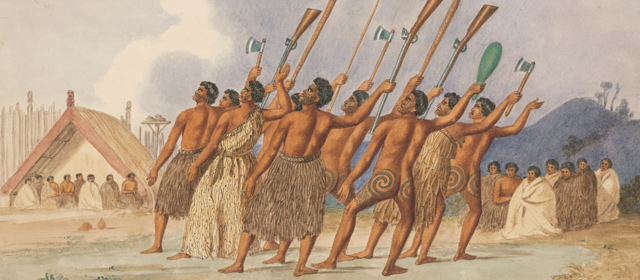 |
| The Tongariro Alpine Walk, Tongariro National Park |
 |
| Walking the Heaphy Track in Kahurangi National Park |
Our Great Walks are a national treasure. All of them are situated in National Parks and as the Department of Conservation puts it, "contain some of most treasured wilderness areas". The National Parks were established for the benefit, use and enjoyment of the public. They are part of our national, natural heritage. Our first National Park was established after Ngāti Tūwharetoa gifted the three mountains of Tongariro, Ngāuruhoe and Ruapehu back in 1887. The nine Great Walks (a tenth will be added in 2018 as a living memorial for the men who died at Pike River Mine) are our opportunity to experience the wilderness of our land through accessing our National Parks safely, without damaging the unique landscape and wilderness that they are situated in. They are not designed to be used for profit and that is the sickening thing about this proposal.
 | ||
| Powelliphanta, Kahurangi National Park | . |
So what if the Great Walks don’t make a profit? We as a nation have become so obsessed with money and profit that we forget some things are priceless and should never be reduced to their money-making potential. If anything, for the sake of the landscape and our heritage, we should be cutting back on the amount of people who access some of these Great Walks, not looking at more ways to bleed the countryside for more money by exploiting the natural resources we have.
I think if Ngāti Tūwharetoa could have foreseen the walking highway that Tongariro in particular has become, perhaps they wouldn’t have gifted the mountains to the people of Aotearoa. Having tramped
 |
| A normal day on the Tongariro Alpine Walk during peak season. |
both the Northern Circuit (a 3-4 day circuit around Mt Ngāuruhoe) and the Tongariro Alpine Walk I have been shocked at the amount of people who traverse this mountain (many ill-equipped with a considerable number every year requiring rescue or airlifting off the track) and how poorly not just visitors, but Kiwis treat this beautiful taonga. I have walked off the mountain at the end of the day with rubbish that had been simply discarded by people traversing this maunga. We don’t deserve these gifts. And Tongariro is a glimpse into the future if privatisation of our Great Walks occurs.
I firmly believe that profit ahead of conservation never works. This would be an absolute disaster for our native flora and fauna, for our heritage, for DoC, for us all if the government ever took this proposal up. Our National Parks are a taonga from those who have gone before us for those who will come after us. We in the present are simply stewards, guardians of that treasure. Let’s make sure that we hand that taonga over in a state that is the most natural and pristine it can be.
I firmly believe that profit ahead of conservation never works. This would be an absolute disaster for our native flora and fauna, for our heritage, for DoC, for us all if the government ever took this proposal up. Our National Parks are a taonga from those who have gone before us for those who will come after us. We in the present are simply stewards, guardians of that treasure. Let’s make sure that we hand that taonga over in a state that is the most natural and pristine it can be.
 |
| Lake Angelus in the Nelson Lakes National Park |










